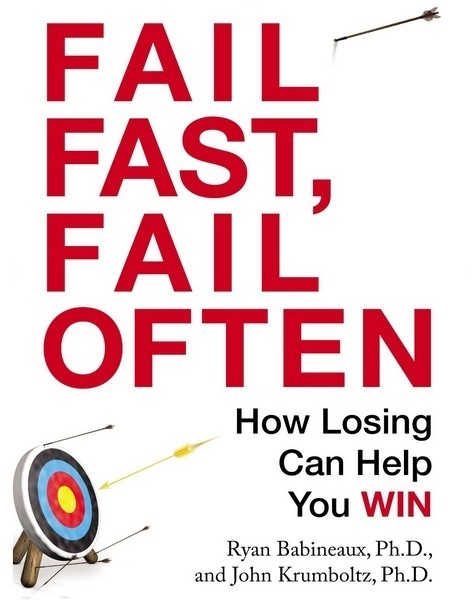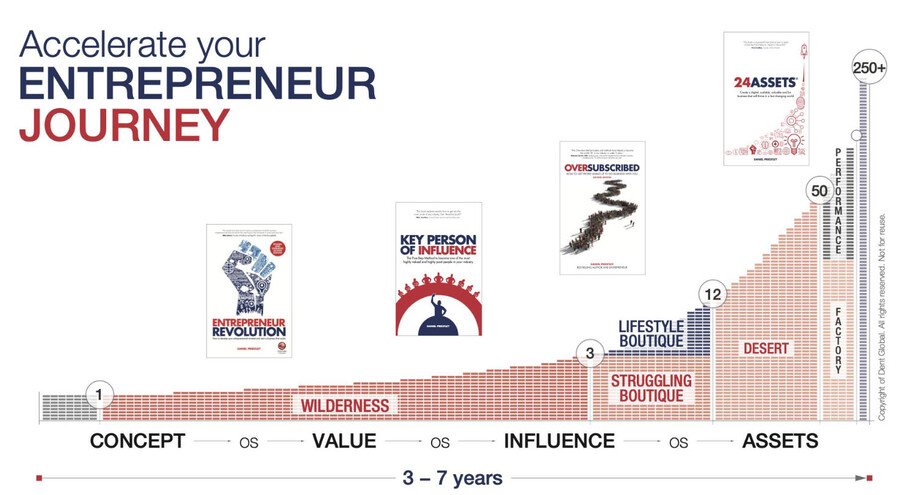 The often heard and quoted catch phrase from Silicon Valley is:
The often heard and quoted catch phrase from Silicon Valley is:
"Fail Fast, Fail Often".
To most British business owners this sounds ridiculous or even defeatist. But we are often portrayed as non risk takers and a people that like to play it safe.
The American argument is fledgling entrepreneurs need to get out there and develop their idea, as one of those ideas will be the next Google. If the idea fails, move on and launch the next one. There seems to be a ready supply of investors who agree with this approach in the hope one of them does turn into the next Google.
Image courtesy of Ryan Babineaux
The UK perception is that you are about to become self employed or a small business owner. I've never met anyone at the numerous networking events over the years that has introduced themselves as an entrepreneur. Our definition is someone who has an established track record of building and running successful companies, and doesn't normally attend networking events!
So 2 extreme sides of the business divide based on common stereotypes.
Is it just a stereotype, or is there any truth to it?
There has been lots of talk in recent years that small businesses are the way forward for the UK economy, and only recently people are starting to question it. Should we focus instead on bigger more established companies?
A lot of small businesses are started not from entrepreneurial vision, but from reality, eg after redundancy and failing to find other work. I'd argue there are a lot of unhappy business owners out there that would relish being an employee again with less responsibility and only soldier on out of necessity.
Other businesses are lifestyle businesses which suit individuals needs, ie give a nice standard of living around flexible working hours fitting in with family life, normally working from home.
These type of businesses are rarely scalable, so don't generate high taxable revenues, or offer full time employee prospects, training or opportunities.
Those small businesses that do strive to be scalable often struggle with growth due to lack of investment opportunities. A mindset wary of giving away equity or taking on debt or maybe even strategy and direction.
The American model (or perceived) is that gung ho wannbe entrpreneurs site down with an investor and sell them their vision. If the investor is won over, then the new business has access to cash and resources and is encouraged to grow as quickly as possible. Key employees are taken on quickly, with decent cash reserves allowing the selection of decent candidates.
This in turn fuels creativity and growth. If the fledgling business is still viable and the model is working, then more investment can be raised. Releasing equity and even control for investment doesn't seem to be such a concern compared to the UK. This cycle continues for years with companies growing in size and developing new products, waiting to be bought out by a competitor or finally make a profit and then move swiftly to IPO so everyone then get their rewards.
The fail fast fail often banner makes the process sound reckless and uncontrolled, but it's a headline. I suspect the reality is a little different. Failing means losing money, either yours and/or your investors. So I doubt an investor is going to be overly impressed with your track record of losing peoples money. Likewise anyone approaching an investor needs to have more than passion, they will need a viable business plan and model.
So is there a half way house?
Are there elements we can learn from America relating to risk? Do we need to push ourselves more? Should we be looking for more aggressive style start ups that have access to funding, with business owners content to give away large chunks of equity or ownership?
Would this model work in the UK? There are pockets of tech startups scattered around the UK that use this model, but could we drive it further? Maybe allocate a big investment pot of cash from the govt to drive and fuel start ups in the hope of fostering the next Google or BAE?
The eventual payback from a few successful companies going public should ensure a healthy return for the tax payer, act as a job creation magnet, create pools of specialist talent and keep them in the UK rather than heading to the States.
Can we change?
We have such an incredible history of innovation and invention, but then look at how many large businesses have folded or sold to overseas corporations. Losing Landrover to Tata was the final straw for me, even worse, look at the spectacular success Tata have made of it ![]() Why couldn't we do that?
Why couldn't we do that?
Is playing it safe and small locked into our business DNA or is there hope for the future?
Will university graduates start leaving pumped full of ambition and determination, but given access to funding and advice to turn it into reality?
Or will they be told to go to work first and get experience? Then have the passion beaten out of them in corporate politics.
I think the UK has to undergo a massive mindset, from benefit culture to how we view success.
Only then can we start to grow again as a major economy. At least in my humble opinion ![]()
Anyone else got any thoughts?


